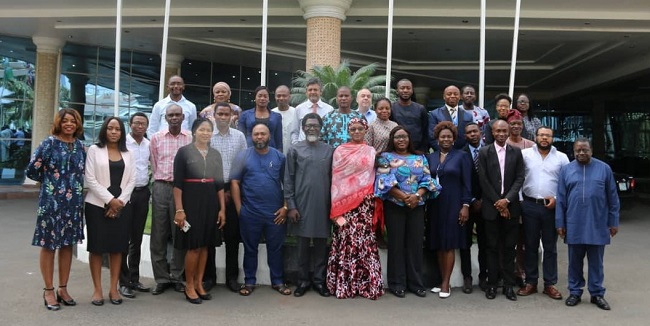Steps to ensure that a proposed off-grid electricity project is less likely to involve a financial loss moved towards a conclusive phase recently in Abuja, where stakeholders met to validate the project document.

Participants at the daylong workshop on Thursday, February 14, 2019 were presented an overview of the Project Document wherein they provided inputs into the project design in the bid to finalise the document.
Titled: “De-risking Sustainable Off-grid Lighting Solutions in Nigeria”, the project is a collaboration involving the United Nations Development Programme (UNDP) Country Office and the Global Environment Facility (GEF), who are supporting the government of Nigeria to actualise the dream.
It is being financed via a $2.64 million GEF grant and $10.6 million of co-financing from the UNDP, government institutions, multi-lateral institutions, and private sector players. The Rural Electrification Agency (REA) is the national implementing partner.
The aim of the initiative is to promote private sector investment in sustainable off-grid lighting technologies by establishing a sound policy environment that facilitates the creation of a self-functioning and sustainable market in Nigeria.
The project Concept has already been approved by the GEF Secretariat and is presently at the Preparation & Endorsement stage. Afterwards, the project will enter a five-year (from 2019 to 2024) implementation phase.
It features three components: Policy derisking of off-grid lighting solutions, Financial derisking of off-grid lighting solutions, Knowledge management and scale-up strategy.
Along the line, changes were made to the project design, such that proposed outputs such as support to establishing a Lighting Transition Fund and support to a kerosene subsidy transition strategy were eliminated. One of the reasons given for the adjustment is that assessments showed that rural households now used little and increasingly less kerosene for lighting purposes, as they were turning to dry-battery powered hand-held torches and standalone generators.
According to a team of project consultants comprising Etiosa Uyigue, Ejiro Joyce Olive-Igbuzor and Sanju Deenapanray, risks (and cost of capital and cost of electricity) can be reduced and/or transferred using a combination of policy derisking and financial derisking instruments.
They listed barriers to the deployment of off-grid rural electrification to include: Power market, Social acceptance, Technology and hardware, Digital platform and Telecoms sector, Developer and energy service providers, Payment and User Credit, Financing.
“One of the critical elements or ingredients that this election will be framed around is the issue of power. So, what we are hoping is that whatever it is that we agree as a project here today will contribute in no small way to finding a lasting solution to the issue of power deficit in the country,” said Muyiwa Odele of the UNDP in an opening message.
